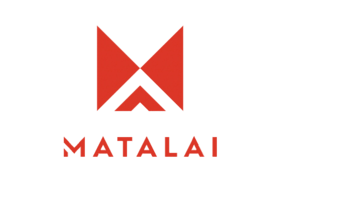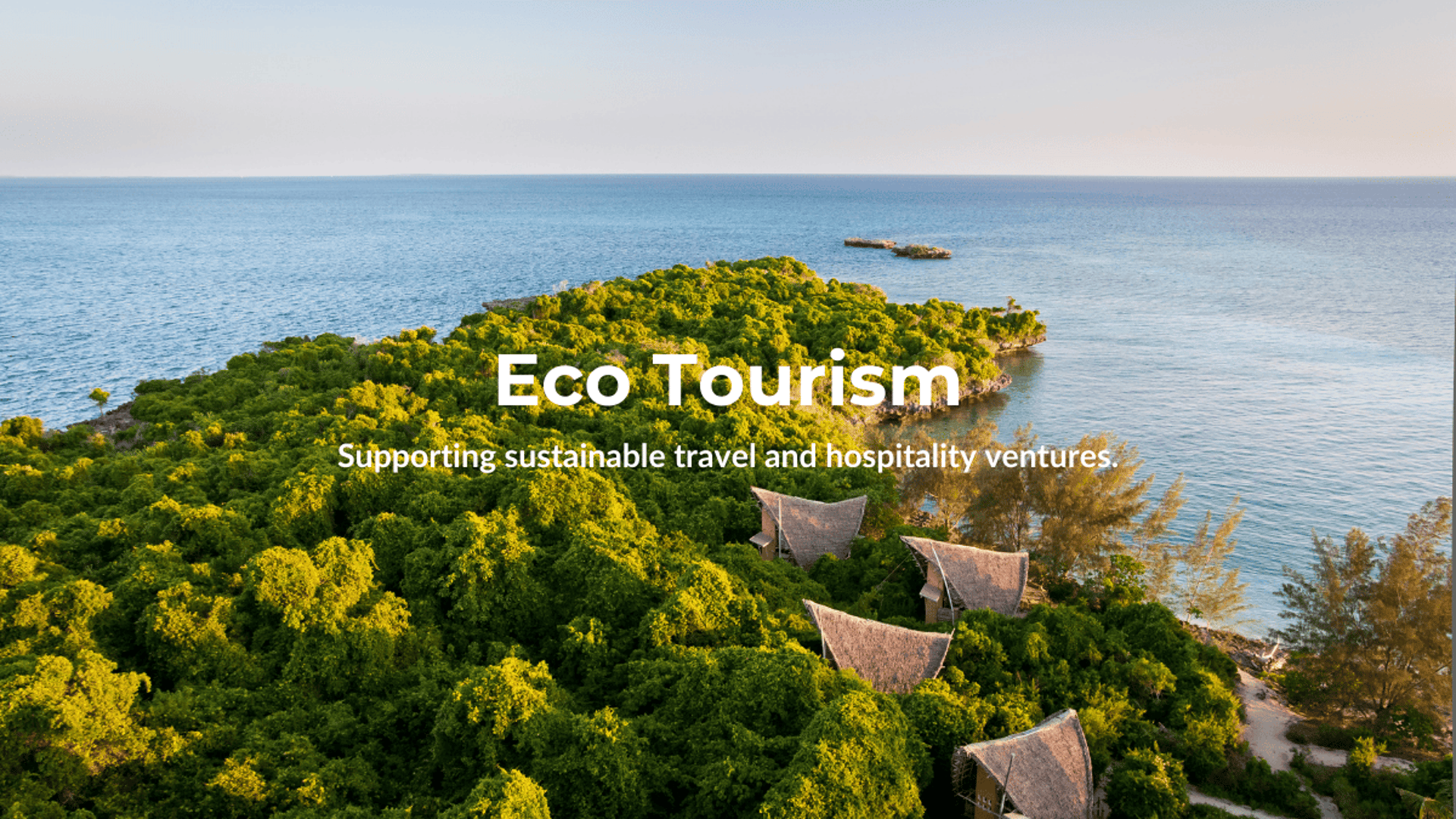
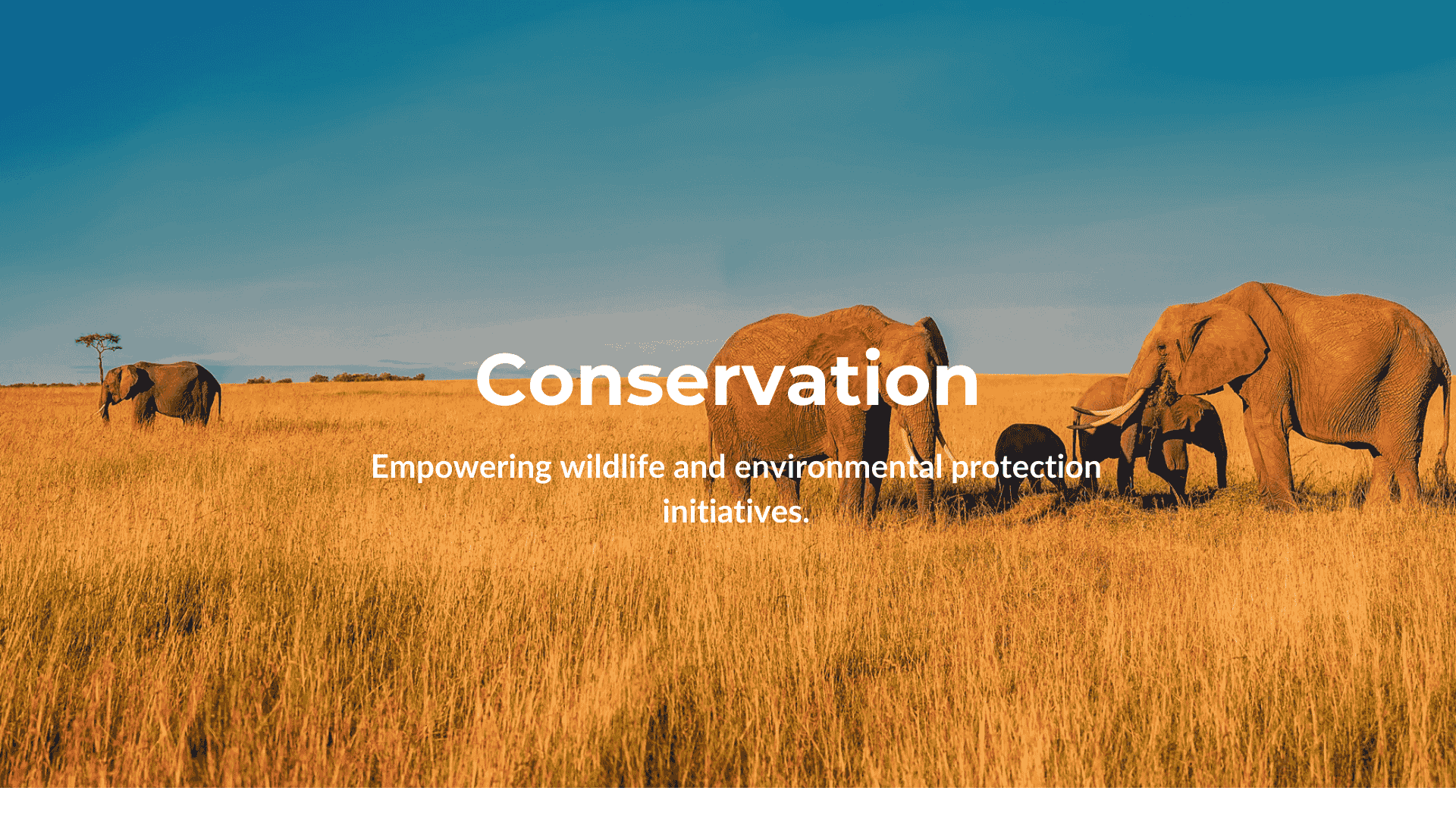

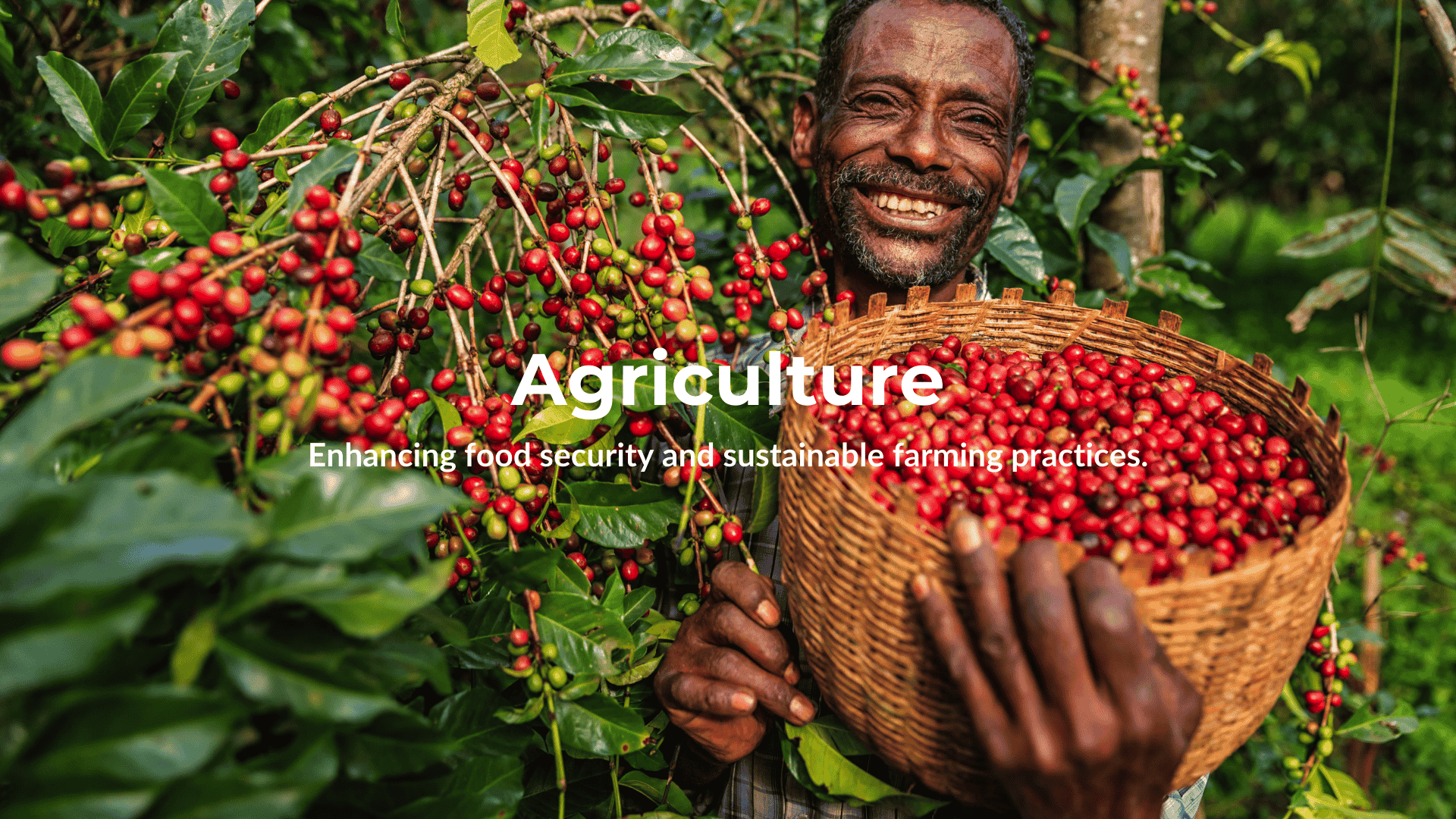
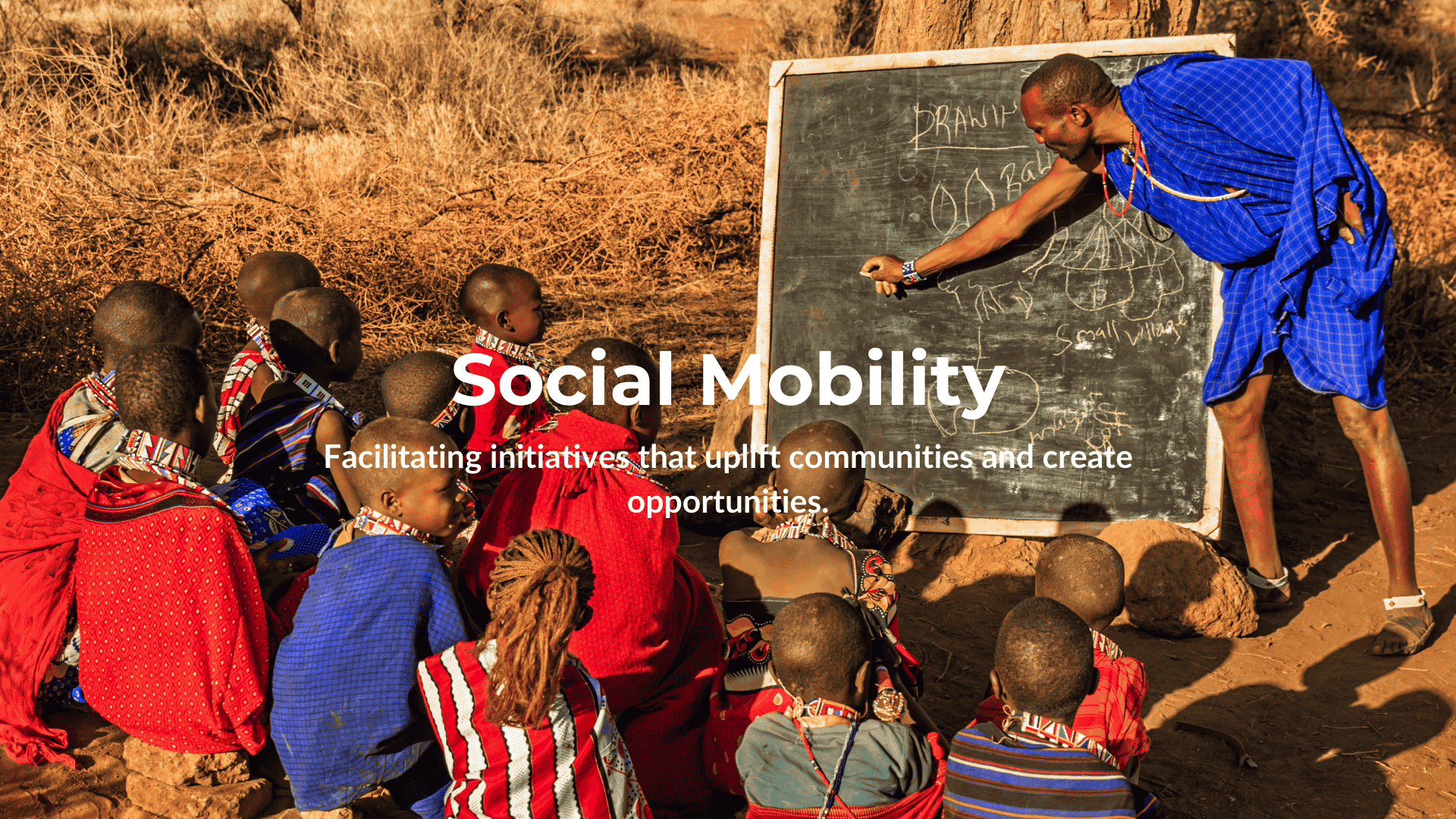
Empowering organizations across sectors like conservation, eco-tourism, agriculture, infrastructure, and energy to drive meaningful change. By combining industry expertise with innovative solutions, we deliver tailored strategies that enhance efficiency, optimize operations, and create lasting results while positively impacting communities and the environment.

Eco-Tourism: Supporting Sustainable Travel and Hospitality Ventures
Africa’s eco-tourism sector is a vital contributor to its economy, fostering job creation, wildlife conservation, and cultural preservation. This industry thrives on the continent’s unique biodiversity and natural landscapes, yet it faces significant hurdles. Among the challenges are balancing growth with environmental preservation, managing seasonal fluctuations in tourism, and building infrastructure in remote or ecologically sensitive areas. Furthermore, the sector’s reliance on international travelers makes it vulnerable to global disruptions, such as pandemics or economic downturns.
• Key Challenges:
• Limited infrastructure in rural and remote eco-tourism destinations.
• Over-tourism in certain areas, leading to environmental degradation.
• Dependence on international tourists for revenue stability.
• Inconsistent enforcement of sustainability standards.
• Stats:
• Africa’s tourism industry contributed $169 billion to GDP in 2019 but plummeted to $86 billion in 2020 due to the COVID-19 pandemic (World Travel & Tourism Council, 2021).
• Global sustainable tourism is expected to grow by 15.2% annually, demonstrating the increasing demand for eco-conscious travel (Allied Market Research, 2021).
For eco-tourism to thrive, sustainable practices must be integrated into business operations, alongside strategic planning to mitigate risks from global uncertainties.
Conservation: Empowering Wildlife and Environmental Protection Initiatives
Africa is home to 20% of the world’s biodiversity and some of its most iconic wildlife species, yet its ecosystems are under constant threat. Rapid population growth, urbanization, and illegal wildlife trade exacerbate habitat loss and biodiversity decline. Many conservation projects face chronic underfunding, which limits their ability to combat poaching, manage large reserves, and engage local communities in preservation efforts.
• Key Challenges:
• Insufficient funding to support conservation initiatives.
• Human-wildlife conflicts due to encroaching settlements.
• Climate change impacts, such as desertification and erratic weather patterns.
• Lack of local community involvement in conservation programs.
• Stats:
• More than 8,000 species in Africa are currently threatened, with 1,200 species listed as critically endangered (IUCN Red List, 2022).
• Protected areas cover only 15% of Africa’s landmass but require an estimated $1.7 billion annually for effective management (World Bank, 2021).
Sustainable conservation requires innovative funding models, greater community engagement, and technological solutions to monitor and protect biodiversity effectively.
Water and Energy: Advancing Access to Clean Water and Renewable Energy Solutions
Access to clean water and reliable energy is critical for economic and social development, yet millions in Africa face significant barriers. Infrastructure gaps, mismanagement of resources, and the high cost of renewable energy technologies limit progress. With urbanization on the rise, demand for these resources continues to grow, creating an urgent need for innovative solutions.
• Key Challenges:
• Aging or insufficient infrastructure leading to water and energy inefficiencies.
• High initial costs of renewable energy technologies.
• Inequitable access in rural areas compared to urban centers.
• Limited government capacity to manage resource distribution effectively.
• Stats:
• 600 million people in sub-Saharan Africa lack access to electricity, and 300 million lack clean drinking water (African Development Bank, 2022).
• Up to 40% of Africa’s water resources are lost annually due to inefficiencies like leaks and poor infrastructure (UN Water, 2021).
Scaling access to water and energy requires public-private partnerships, improved governance, and investment in renewable and decentralized systems.
Agriculture: Enhancing Food Security and Sustainable Farming Practices
Agriculture remains the backbone of many African economies, employing more than 60% of the continent’s population. However, outdated farming methods, climate change, and fragmented supply chains pose serious threats to food security. Smallholder farmers, who produce 80% of the continent’s food, often lack access to modern equipment, credit, and markets, further compounding these challenges.
• Key Challenges:
• Poor infrastructure leading to high post-harvest losses.
• Limited access to financing for smallholder farmers.
• Vulnerability to climate shocks, such as droughts and floods.
• Lack of knowledge transfer for sustainable farming techniques.
• Stats:
• Agriculture contributes 23% of sub-Saharan Africa’s GDP, yet up to 40% of crops are lost annually due to poor storage and transportation (FAO, 2022).
• By 2050, Africa will need to increase agricultural production by 60% to meet the demands of its growing population (World Bank, 2022).
Investment in infrastructure, access to credit, and sustainable farming practices are critical to enhancing agricultural productivity and resilience.
Social Mobility: Facilitating Initiatives That Uplift Communities and Create Opportunities
Social mobility remains a significant challenge in Africa due to structural inequalities, limited educational opportunities, and high unemployment rates. While the continent boasts one of the world’s youngest populations, with over 60% under the age of 25, many young people face barriers to upward mobility, including a lack of access to quality education, skills training, and stable employment.
• Key Challenges:
• Inadequate access to secondary and tertiary education.
• High rates of youth unemployment and underemployment.
• Gender disparities in education and workforce participation.
• Limited opportunities for career progression in formal employment sectors.
• Stats:
• Less than 10% of students in sub-Saharan Africa graduate from tertiary education (UNESCO, 2022).
• Youth unemployment in Africa is 12.7%, with many more underemployed in informal sectors (African Union, 2021).
Promoting social mobility requires targeted investments in education, vocational training, and job creation, alongside policies that address systemic inequities.

No matter which sector you occupy, please reach out to see if we can help..
17 Kloof Street, Cape Town 9009, South Africa
info@matalai.com
+27 (0) 21 362 1891
Matalai 2024. All rights reserved.


